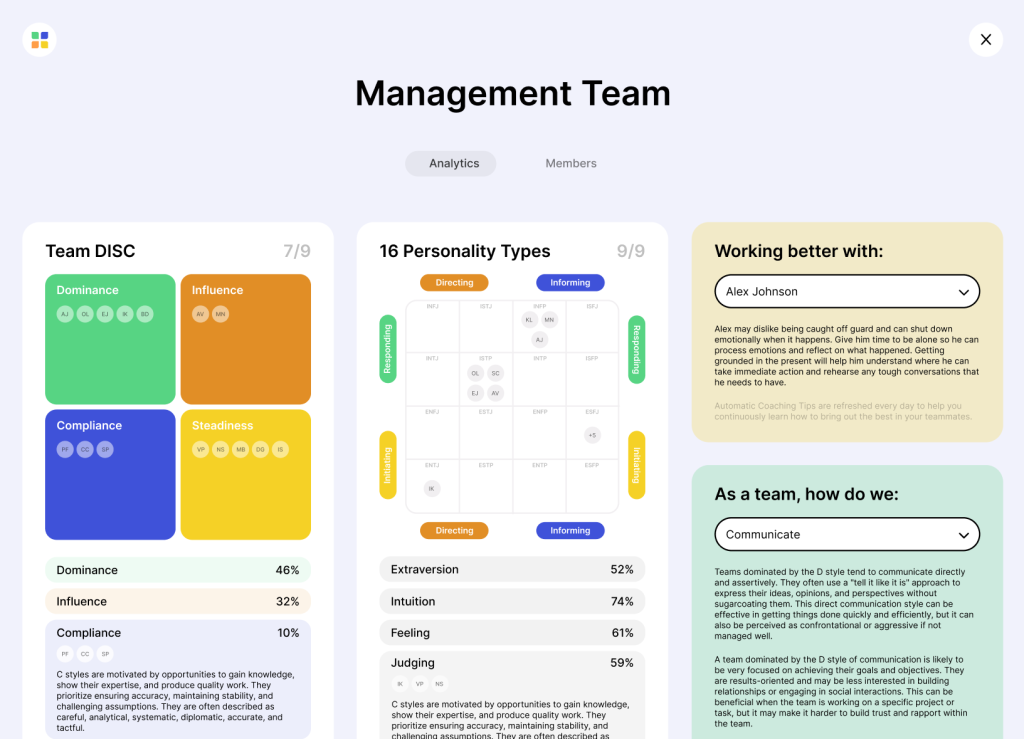ESFPs are one of the sixteen possible personality types identified by the MBTI. People of this type are extroverted, sensors, feelers, and have the prospecting trait. Such individuals love to enjoy life at the moment, and they take pleasure in discovering new activities and meeting others.
Those with the ESFP personality also called the Entertainer or the Performer, are extremely social and may even encourage others to participate in social events alongside them. However, there are also two different subsets of personalities when it comes to the ESFP or any MBTI type.
One is the ESFP-A, with the A referring to being assertive. The ESFP-T is the turbulent Entertainer. Read on to see a few of the differences between these personality types, as well as tips to bring out your strengths.
Differences Between ESFP-A and ESFP-T
Friendships
Whenever the ESFP-A has a fight with his or her acquaintance, they are more likely to offer forgiveness quickly when compared to the ESFP-T. Those with the assertive trait will likely hold in their feelings, which can lead to fewer clashes but also makes them less transparent to their friends.
Assertive types are quick to show and share their happiness, but will likely suppress negative emotions. There are benefits to experiencing negative emotions, but assertive people prefer to suppress their feelings instead of speaking to their community about them.
The ESFP-T is more likely to hold a grudge against a friend. They are also more easily hurt by criticism or backlash. While both ESFP types are generally feeling focused and more sensitive than thinkers, this is especially true with the ESFP-T, so consider being careful with your words around them.
Relationships
ESFP-Ts are more easily stressed when it comes to relationships. They may get paranoid if their partner stays out late, comes home past their usual arrival time, and so on. Assertive ESFPs, on the other hand, feel more in control of their lives and may not need a partner to help them reduce their stress, as stress reduction is not a priority to the ESFP-A.
The ESFP in relationships is generally friendly, and generous, and likes to show their affection for their partner. This is true for both subsets of the ESFP. They also enjoy being supported by others, living a spontaneous lifestyle, and being generous to others.
Workplace
Because ESFP-Ts tend to worry more in the workplace, they prefer a more stable and less stressful environment when compared to the ESFP-A. In the workplace, turbulent Entertainers are afraid of having lots of power and making decisions, while assertive Entertainers enjoy having control and like to lead and take charge.
In fact, turbulent Entertainers may even be afraid of having to choose and would prefer task delegation to not be an aspect of their job.
Working in a Team
Assertive individuals are more confident of their abilities and prefer to make decisions themselves instead of giving others the chance to control their destinies. ESFP-Ts, however, build strong relationships with those around them and enjoy it when they do not have to make decisions.
They often get stressed and enjoy having strong communication systems in the workplace so they can be supported whenever they need it. However, the ESFP-Ts’ indecisiveness can also mean they take decisions seriously, so they can be daunted to look into all the details before making a decision or taking a risk.
ESFP-A Strengths and Weaknesses
There are some shared ESFP flaws, but the two types of Entertainers do have some of their own unique drawbacks. There are also some unique ESFP strengths, one in particular which is strong interpersonal skills.
These qualities are shared between both the turbulent and assertive ESFPs. The assertive tend to decide with little fear, meaning they can work quickly. However, their swift decision-making can result in overlooking key details.
ESFP-As have a strong grasp on their emotions. They allow themselves to feel emotions but can stay relatively objective when making decisions. Additionally, this type is also able to read others’ emotions and body language.
Confidence is another key trait for ESFP-As. They do not look for others to affirm their actions but do appreciate it when they are given compliments. However, their decision-making process is less reliant on emotions, such as anger. Whenever confronted with stress, they simply try to remove the stressors instead of worrying.
ESFP-T Strengths and Weaknesses
ESFP-Ts may not feel as comfortable with themselves when compared to assertive individuals. However, there is an advantage to personal discomfort. Because they are not as satisfied with themselves, turbulent ESFPs have a higher desire to seek self-improvement. This can lead to greater achievement further in their lives.
Turbulent individuals are more prone to feeling stressed out. However, they are comfortable with sharing these emotions with those close to them in order to get over their feelings. Decision-making is not the ESFP-T’s strength. In fact, they enjoy not having to make decisions.
This can be fueled by self-doubt or uncertainty. But, it does mean they are more likely to dig deep into the decisions they make to find all the details about every choice.
Jobs and Career Paths for ESFP-A
Unlike their turbulent counterparts, the ESFP-A is more comfortable with decision-making. They make these decisions swiftly, making them decisive and great in fast-paced environments. Additionally, they enjoy helping others and making a difference in their community.
Possible career paths for the ESFP-A includes:
- Fitness trainer
- Pediatrician
- Retail salesperson
- Musician
- Firefighter
- Police officer
- Chef
- Animal trainer
- Public relations manager
- Real estate agent
Jobs and Career Paths That ESFP-A Should Avoid
Assertive ESFPs do not enjoy working alone and find great pleasure in seeing the impact of their work in their community. They do not enjoy living in theoretical spaces and would prefer to perform their work based on information about the present.
If you are an ESFP-A, avoid the following careers:
- mechanical engineer
- chemical engineer
- biomedical engineer
- systems manager
- philosopher
- accountant
- economis
Jobs and Career Paths for ESFP-T
Of the two types of ESFPs, the ESFP-T should be given more stable and less stressful roles. They should be given plenty of support and many opportunities to socialize with their team. This means that managerial, entrepreneurial, or leadership roles may not be suited for this personality. On the other hand, there are some jobs where this type truly excels.
Here are just a few of these excellent turbulent ESFP career paths:
- Dietician
- Elementary teacher
- Jewelry work
- Florist
- Photographer
- Restaurant host
- Massage therapist
- Cosmetologist
- Dental hygienist
- Child care provider
Jobs and Career Paths That ESFP-T Should Definitely Avoid
The key to making an ESFP-T happy is creating a social and stable work environment. Ensure that they are not working alone or unsupported by their employers. Also, jobs that require lots of managing, risk-taking, or decision-making should be avoided.
This includes:
- school administrator
- entrepreneur
- college professor
- airline pilot
- accountant
- superintendent
Who should ESFP-T marry?
Generally, ISTJs and ISFJs are considered natural partners for ESFPs. However, ESFP-T is a subtype of the ESFP personality, which stands for Turbulent Entertainer. Turbulent personalities have a hard time adapting to changes and are less confident in themselves.
In order to balance these insecurities, people with the ESFP-T personality subtype prefer to choose Assertive (A) individuals. Therefore, ESP-T should marry turbulent subtypes of the personality types that get along with them. So, they can marry either an ISTJ-T or an ISFJ-T.
Is ESFP-A compatible with ESFP-T?
No, two ESFPs aren’t really compatible with each other because when two people with this personality type interact, a lot of problems can arise.
However, no two personalities are perfectly compatible, and therefore, it doesn’t mean that ESFPs and ESFPs can’t be in a romantic relationship or can’t be friends with one another. Sometimes people prefer to be in a relationship with individuals with whom they share all their basic personality traits.
How common are ESFP-A and ESFP-T?
ESFP is one of the most common personality types among all 16 MBTI personalities. In particular, ESFPs make up about 9% of the total population, which makes them the sixth most common personality type after ISFJ, ESFJ, ISTJ, ISFP, and ESTJ.
When it comes to ESFP subtypes, ESFP-Ts tend to be slightly less common in the general population than ESFP-As. However, both subtypes of ESFP happen to be almost equally divided in the general population.

